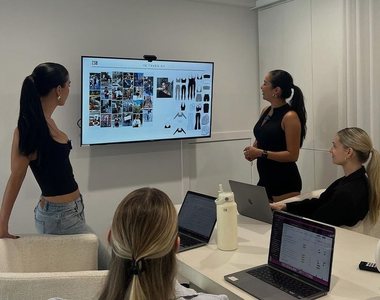
It seems that we have left behind the era when employees easily moved from one job to another, “chasing” better opportunities. Now, a new trend is taking hold. Instead of looking for the next step in their career, many employees, especially Generation Z, are staying where they are, albeit without any pay raises or promotions.
According to experts, this is not necessarily a sign of commitment, but more an effect of fear and uncertainty in the labor market.
This behavior has been called " job hugging," a widespread but often misunderstood choice.
According to international consulting firm Korn Ferry and reporting by vice.com , many employees don't stay in the same job because they are motivated, but because unemployment seems much more frightening.
At a time when the economy is still struggling to stabilize, new job creation remains sluggish, and as artificial intelligence threatens existing roles, job security is being perceived as a luxury.
What does the data say?
According to a survey by Eagle Hill Consulting, the majority of employees plan to stay in their current job for at least the next six months, and at the forefront of this trend is Generation Z.
As Jennifer Schielke, CEO of Summit Group Solutions, describes it to Forbes magazine:
“Work engagement creates the illusion of engagement, but in reality it is simply a form of stagnation. If employers read this as success, they risk ignoring the silent frustration that could erupt once the market improves.”
According to Tara Ceranic Salinas, professor of business ethics at the University of San Diego:
“This is a difficult time for everyone. Employers need to take concrete action. Investing in internal culture, empathy and humanity are essential to build trust and avoid losing talent.”
How to recognize "job hugging"?

According to Schielke, some warning signs are:
Increased stress affecting the team atmosphere
Excessive focus only on tasks where the employee feels comfortable, not on those that help the team
Exaggerated willingness to help, just to “stay safe”
Employees who have reached the limit of development in their role, but continue to stay there for fear of unemployment
What can employers do?

Experts suggest some concrete steps to avoid the passivity of fear and build real engagement:
Create spaces for honest communication and take action based on it.
Offer training and mentoring, opportunities for personal growth and development
Provide real flexibility and support for hybrid working
Show empathy and sensitivity from management to build trusting relationships
Help employees understand how their work connects to the company's larger goals and how they can impact long-term success
What can employees do themselves?

Although the situation is challenging, employees can use this period to:
Planned their long-term career
Develop new skills, within or outside of your current role
Talking to managers about growth opportunities or positive changes in position
Analyze the roles that inspire them and design a concrete development plan
As Schielke concludes:
"Embracing work is not a long-term solution, neither for the employee nor for the company. Uncertainty should not be seen as an obstacle, but as an opportunity to reflect, learn, and grow."
Source: Marie Claire





